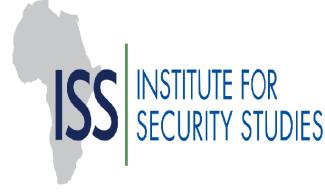ISS Analysis: Moroccan Autonomy Plan for Western Sahara Unlikely to prevail and Self-Determination Remains the Key

Pretoria (South Africa), 16 August 2024 (SPS) — An article published today by the Institute for Security Studies (ISS), authored by Peter Fabricius, critically examines Morocco's recent diplomatic efforts to impose its illegal autonomy plan for Western Sahara. The analysis concludes that this plan is unlikely to prevail, emphasizing that self-determination for the Sahrawi people remains the only viable solution.
The article focuses on Morocco’s push for autonomy, which the Sahrawi Arab Democratic Republic (SADR) vehemently opposes. Although Morocco has secured endorsements from former US President Donald Trump, Spanish Prime Minister Pedro Sánchez, and French President Emmanuel Macron, the SADR's position is firmly rooted in international law and historical precedent related to decolonisation.
Fabricius highlights that despite Morocco’s attempts to gain international recognition of its colonial claim, the SADR continues to enjoy significant support, particularly from the African Union, Key African nations and global actors committed to a fair and legitimate resolution. The Moroccan strategy, which includes leveraging high-profile endorsements to legitimize its control over Western Sahara, is critiqued for failing to overrule the core issue of self-determination.
The article underscores that Western Sahara’s status should be determined by its people through a referendum, a principle still upheld by the European Union despite recent shifts from France and Spain. The UN’s position is expected to reinforce this stance when it discusses the issue in October.
In this respect, the article adds, Dr. Jacob Mundy, Associate Professor and Chair of Peace and Conflict Studies at Colgate University, notes that any attempt by France and the US to push Morocco’s autonomy plan at the UN Security Council would likely face strong resistance from China and Russia.
The UN’s official stance remains indeed a cornerstone of the SADR’s argument, the article recalls. The principle that Western Sahara’s status should be determined by a referendum among its people is still upheld by the United Nations. This position reinforces the legitimacy of the SADR’s claims and highlights the need to resolve the issue according to international law.
The article concludes by noting that Algeria’s current non-permanent seat on the UN Security Council makes it unlikely that Morocco’s autonomy plan will gain broad support. This, combined with ongoing international backing for the SADR, suggests that the quest for Western Sahara’s independence remains a significant and legitimate struggle, despite the challenges posed by Morocco’s diplomatic maneuvers.
On his side, Mohamed Yeslem Beissat, SADR’s ambassador to South Africa, quoted by the article, disputes the claim that the SADR’s cause is “flagging” as the title of the article claims, labeling such notions as basic “Moroccan propaganda.”
Beissat argues that recent international endorsements reflect the views of individual leaders rather than official policies of their governments. He stresses that the SADR’s ongoing recognition and membership in the African Union (AU) are indicators of its enduring resilience.
The Saharawi diplomat questions the validity of claims that more than half of AU members support Morocco’s sovereignty over Western Sahara, highlighting the continued membership of the SADR in the AU as evidence to the contrary. He also points out that claiming that Sahrawis need to secure global support to force big nations to support Saharawi rights is just an argument, for the vehement international support for Palestine has not helped Palestinians much in changing Israel’s policies, questioning whether international backing alone is sufficient to alter the reality.
Beissat dismissed the importance of the support from other governments or entities to the Moroccan colonial claims, insisting that “the only opinion that counts is that of the people of Western Sahara. ‘If they started supporting Morocco’s claim to Western Sahara, then I would be worried,” he said. (SPS)
090/500/60 (SPS